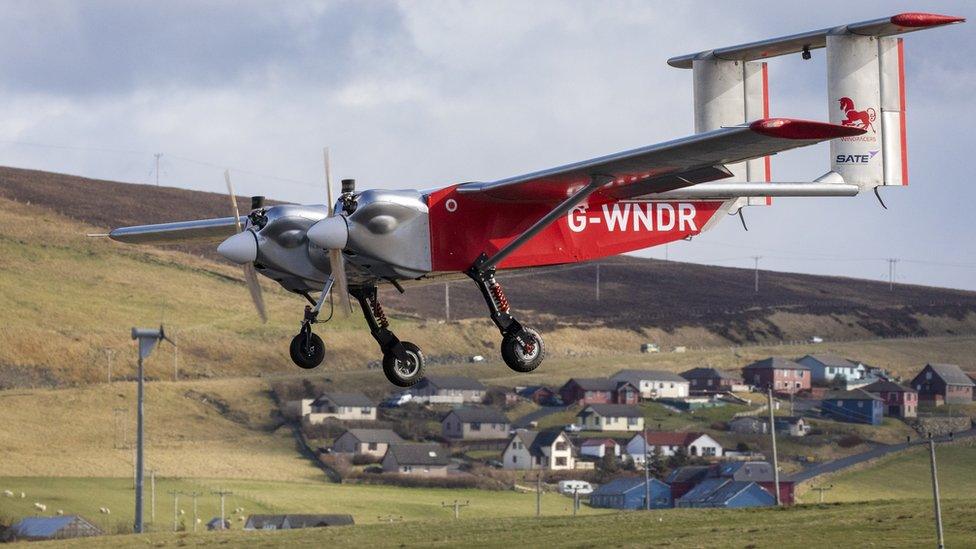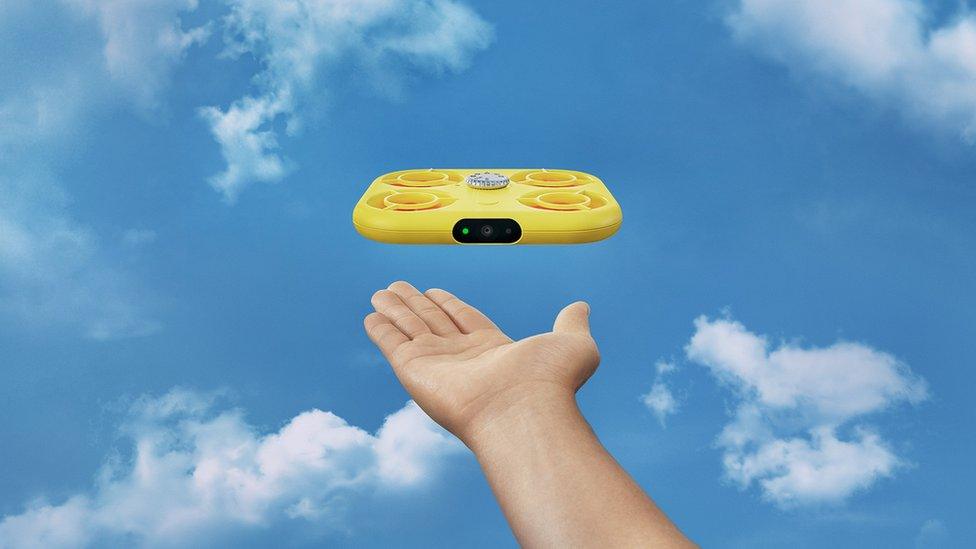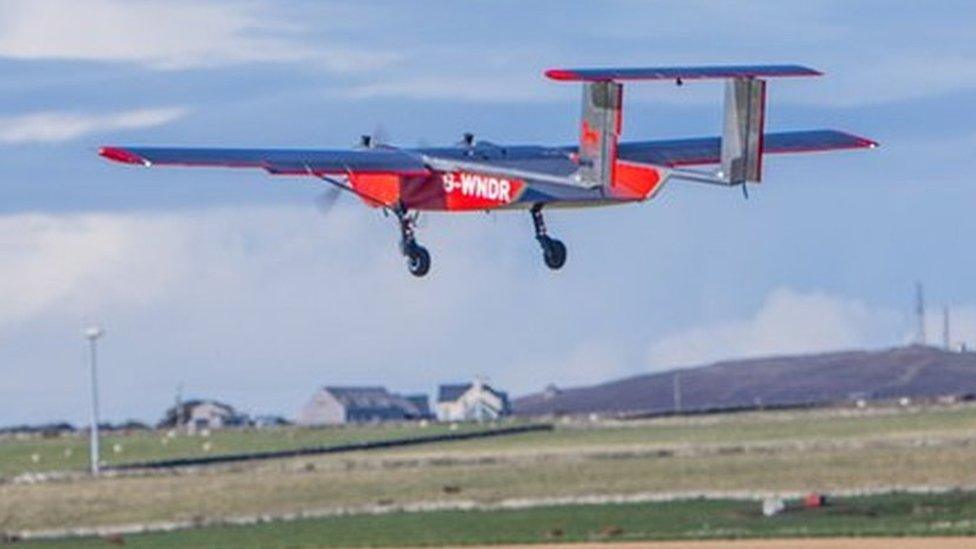Royal Mail wants fleet of 500 drones to carry mail to remote UK communities
- Published
- comments

The Royal Mail wants a fleet of 500 drones to help deliver the mail to remote communities across the UK.
In the next three years it hopes up to 200 drones will help carry the mail on 50 new routes with the Isles of Scilly, Shetland Islands, Orkney Islands and the Hebrides the first to benefit.
The new services need approval from the Civil Aviation Authority (CAA).
It says that the new routes will depend upon the "ongoing planned improvement in Unmanned Aerial Vehicle economics".
Royal Mail has been testing the use of drones for some time, with the most recent trial held in April on the Shetland Islands.
The drones delivered mail between Tingwall Airport in Lerwick to Unst, Britain's most northerly inhabited island - a 41-mile flight each way.
Drone delivers mail to remote Orkney island
'Fly in fog'
There are companies aiming to deliver to the door, with autonomous drones winching down packages of goods from hovering vehicles.
But the drones the Royal Mail plans to use do not have the ability to hover, and won't be replacing the postman or woman on their rounds.
The drones are large, 10m (32.8ft) wingtip to wingtip, with a range of 1,000km (621 miles) and able to carry up to 100kg (220lb). They are powered by two internal combustion engines.
Chris Paxton, head of drone trials at Royal Mail, told the BBC the drones were originally designed to deliver aid in Africa.
"They are able to take off in a relatively short space and land in a similar short area. So they are capable of landing on fields, providing the the area is flat enough," he said.
"They are very much like a small plane. And the only difference is there isn't a pilot on board."
The drones, he says, fly autonomously although they are supervised remotely by "safety pilots", who can take control if needed.
They are designed to serve what he calls the "middle mile". Once their cargo is unloaded it will be delivered by postal workers.
Royal Mail argues that drones offer a chance to reduce carbon emissions, Drone-makers Windracers, Royal Mail's partner on the new routes, says they produce 30% fewer emissions than comparable piloted aircraft.
The drones are also, Mr Paxton says, less likely to be affected by bad weather than conventional aircraft.
"There is no need for the pilot to be able to see where they're going, which means they can fly in fog," he says, "And because they're flying rather than going on the sea, they're also not relying on tides."
Analyst Kay Wackwitz of Drone Industry Insights said this sort of middle mile transportation "addresses an essential problem for remote regions".
"In comparison to ferries, island delivery can be done more quickly, more flexibly, and at a smaller ecological footprint," he said.
Permission to fly
However, for the system to be a success the planned routes will need CAA approval.
The authority told the BBC it was in the "very early stages" of discussions with Royal Mail about its plans.
Besides the Royal Mail, a limited number of trials of deliveries by drone are taking place in the UK.
Last year, a company called Skyports, external started carrying Covid test samples and other medical materials between medical facilities.
In general, the CAA says trials of drone deliveries are based on either limiting other aircraft's access to the airspace where drones are flying, or by drones sharing the airspace with others in a very controlled way.
Ultimately the organisation says for things like drone deliveries to be an everyday occurrence they need to be "fully integrated into the airspace" with all the other users, from parachutists to military fast jets.
While there is a roadmap to increase the use of drones, the CAA says a combination of new technology, and more equipment in aircraft to detect and avoid them are needed along with trials to check safety.
But Mr Paxton is confident that the Royal Mail, which in the long-term wants a 500-strong fleet, will be able to get CAA approval.
"We are working with them, we're committed to working with them to open up the skies, and confident that we'll be able to do that," he said.
Related topics
- Published1 May 2022

- Published6 October 2021
